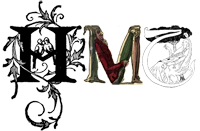THURSDAY, March 31 | 11:00 AM-6:30 PM
School of Communication and Information (Rutgers)
This one-day symposium will explore the theory and practice generated around the concept of SOURCE. Across a series of events, we will reflect on
practices of collecting, politics and publics of the archive, critical thought initiated from and disciplinary discourses framing the primary source, as well as the materiality and form of the source, be it letter, daguerreotype or digital object. This discussion aims to transcend boundaries by bringing together academics and practitioners from a wide range of institutions of the cultural record. We want to attract an audience from equally varied backgrounds.
The events also aptly mark the ten-year anniversary of School of Communication and Information’s student organization known as SOURCE (Student Organization for Unique and Rare Collections Everywhere), which we will celebrate with a reception at the end of the day.
(Except as noted, all events are free and open to the public.)
PRELIMINARY PROGRAM
11:00 AM-12:00 PM | School of Communication and Information (Room 323)
“What’s in a Photograph?”: A Brief Introduction to Photo Identification and Preservation
A Workshop with KEVIN SCHLOTTMANN (Center for Jewish History)
Moderator: Jill Baron (Rutgers University)
Due to space limitation, this event is by registration only (RSVP
jebaron@eden.rutgers.edu).
1:00 PM-3:00 PM | Alexander Library (4th floor lecture hall)
Material Inscriptions, Collections, and Their Publics (Papers)
JARED ASH (Newark Public Library)
“Text, schmext!”: Collecting Books as Objects of Art and Design
KARLA NIELSEN (University of Illinois)
Reading Erasure in the Archive: The Making of Medieval Spanish Literature
LAURA HELTON (New York University)
On the Politics of Collecting: Archival Publics and African American
Documentary Practice, 1920-1960
IULIAN VAMANU (Rutgers University)
North American Indigenous Curators’ Discourses of Aboriginality and Material
Practices of Curation: A Case Study of the “Song for the Horse Nation”
exhibition at the National Museum of American Indian (NYC)
Moderator: Marija Dalbello (Rutgers University)
Break with refreshments (3:00 PM-3:15 PM)
3:15 PM-4:45 PM | Alexander Library (4th floor lecture hall)
From Fever to Folder: Applying Critical Theory in the Archives (Panel
Discussion)
Panelists:
JENNA FREEDMAN (Barnard College)
LAURA HELTON (New York University)
GRACE LILE (WITNESS)
JONATHAN LILL (Museum of Modern Art)
MARK MATIENZO (Yale University Library)
Respondent: to be announced
Moderator: Rachel Miller (Center for Jewish History)
5:00 PM-6:30 PM | Alexander Library (4th floor lecture hall)
Rutgers Seminar in the History of the Book event (Lecture)
SONIA CANCIAN (Université de Montréal/Concordia University)
The Poetics and Politics in the Intimate Worlds of Immigrant and Homeland
Epistolarity
These events are free and open to the public.
7:00 PM-10:00 PM | Location to be announced
Reception “SOURCE at 10” including “To the SOURCE on the Field” (Panel)
Moderators: Carolyn Dorsey (Rutgers University) and Ana Ramirez Luhrs
(Lafayette College)
This event is by registration only – RSVP to Carolyn Dorsey
carolynd@eden.rutgers.edu OR Ana Ramirez Luhrs luhrsa@lafayette.edu.
Abstracts and full information about each of these events and directions with parking information are forthcoming.
—————————————————
Symposium Program Chairs: Marija Dalbello and Rachel Miller
“SOURCE AT 10” Program Chairs: Carolyn Dorsey and Ana Ramirez Luhrs
Organizing Committee: Jill Baron, Marija Dalbello, Carolyn Dorsey, Rachel Miller, Ana Ramirez Luhrs
—————————————————
Sponsored by: School of Communication and Information
Keynote lecture sponsored by: Rutgers Seminar in the History of the Book, 2010-2011.
